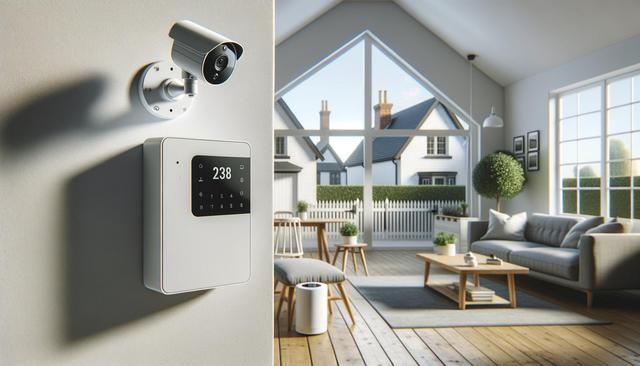
A Practical Guide to Home Security Systems
Why Home Security Systems Matter
Home security systems play a vital role in safeguarding personal property and ensuring the safety of loved ones. With increasing concerns about residential break-ins, theft, and even environmental hazards like fires or gas leaks, having a reliable security setup can make a significant difference. These systems are designed to detect unauthorized access, notify homeowners or authorities, and in many cases, deter criminal activity before it happens. The peace of mind that comes from knowing your home is monitored—whether you’re there or away—is invaluable. Moreover, some insurance providers recognize the added protection and offer discounts on home insurance premiums for properties equipped with certified security systems.
Key Components of a Home Security System
A well-rounded home security system typically includes several components that work together to protect your home. Understanding these elements helps in selecting a system that fits your specific needs. Common features found in many setups include:
- Door and window sensors that alert you if an entry point is breached
- Motion detectors that monitor suspicious movement within and around the property
- Security cameras for visual monitoring and evidence collection
- Control panels for arming and disarming the system
- Alarms and sirens to deter intruders
- Mobile apps for remote access and control
Some advanced systems also incorporate environmental sensors such as smoke detectors, carbon monoxide monitors, and water leak detectors. These additions expand your system’s usefulness beyond crime prevention and into broader home safety.
Choosing the Right System for Your Home
There’s no one-size-fits-all solution when it comes to home security. The right system for you will depend on several factors including your home’s size, layout, location, and your personal preferences or lifestyle. For instance, a small apartment may only require a few sensors and a camera, whereas a larger home might benefit from a more advanced setup with multiple cameras and automation features.
When evaluating options, consider:
- Wired vs. wireless systems
- Professional monitoring vs. self-monitoring
- Scalability and compatibility with smart home devices
- Ease of installation and use
Researching customer reviews and looking into service reliability and support can also help guide your decision. It’s important to choose a system that not only meets your budget but also offers meaningful protection and functionality.
Benefits Beyond Security
While the primary goal of a home security system is protection, there are additional advantages that come with installing one. Deterrence is a major benefit; visible cameras and signs indicating a monitored property can discourage potential intruders. Furthermore, the convenience of remote access allows homeowners to check their cameras, receive alerts, and control settings from their smartphones, no matter where they are.
Other notable benefits include:
- Increased property value due to enhanced safety features
- Better emergency response times with connected monitoring services
- Integration with home automation systems for energy savings and convenience
These features not only make daily life more manageable but also add layers of comfort and control to your home environment.
Maintenance and Upkeep
To ensure continued performance, it’s essential to maintain your home security system regularly. This includes checking battery levels in wireless sensors, updating software for smart components, and ensuring all cameras and sensors remain unobstructed and functional. Many systems offer maintenance alerts or diagnostics through their apps, helping users stay informed about the system’s health.
Simple maintenance steps include:
- Testing alarms and sensors monthly
- Cleaning camera lenses and repositioning if needed
- Reviewing activity logs and video footage for anomalies
- Replacing outdated equipment when necessary
By staying proactive, homeowners can avoid lapses in security and ensure their system continues to provide effective protection year-round.
Conclusion: Investing in Peace of Mind
For homeowners seeking a practical way to enhance safety, home security systems offer a balanced blend of technology and reassurance. Whether protecting against intrusions, monitoring environmental hazards, or simply keeping an eye on daily activity, these systems deliver meaningful value. Choosing a system that aligns with your home’s needs and maintaining it properly can help ensure long-term satisfaction and safety. In an age where security and convenience go hand in hand, investing in a reliable home security setup is both a wise and empowering step.


